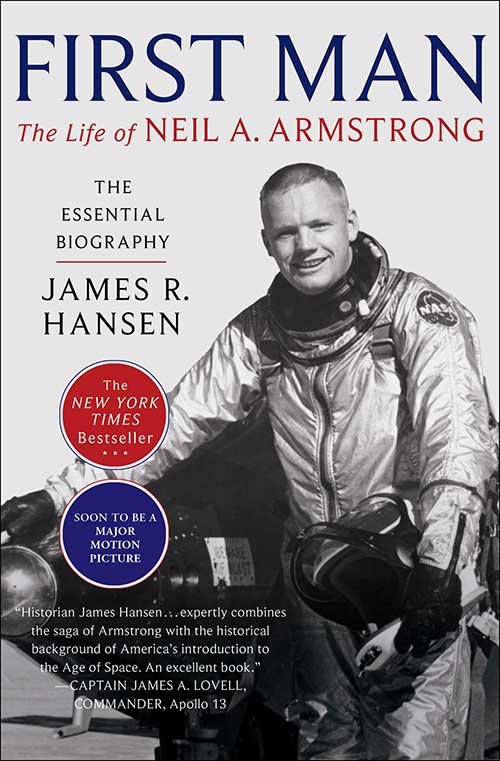Inspire Innovate Transform


2018 Academic Recognitions - Prior to each home game during the 2018 football season, Auburn University is recognizing on the field extraordinary Auburn programs and people who inspire, innovate and transform through life-changing research, industry partnerships, community outreach and an elevated student experience.
It was almost 50 years ago when astronauts Neil Armstrong, Buzz Aldrin, and Michael Collins first journeyed to the Moon, and, for Armstrong, the first person to ever step foot on it. This historic step serves as the title of Auburn History Professor Emeritus James R. Hansen’s book, First Man: The Life of Neil A. Armstrong, and the new movie based on it, “First Man.”
Hansen’s book, first published in 2005, chronicles the life of Armstrong both before and after landing on the Moon in 1969 and serves as the basis for the film, which is due out Oct. 12. Hansen served as a co-producer and spent considerable time on the set in Atlanta getting to know the actors and giving advice about how best to portray Armstrong, who passed away in 2012. The film is receiving early Oscar buzz and stars noted actors Ryan Gosling, Claire Foy, and Kyle Chandler. It was directed by Academy Award-winner Damien Chazelle, and the script was written by Oscar-winner Josh Singer.
As Armstrong’s official biographer, Hansen got to know him quite well while writing the book and says Armstrong was quick to give credit to others. “He always made the point that the astronauts were at the top of a big pyramid of other people who played a major part in making the Moon landing possible,” Hansen said.
Hansen, an award-winning author and professor at Auburn for 31 years, is working on a new book, Dear Neil Armstrong: Letters to the First Man on the Moon, in which he reviews some 90,000 letters written to Armstrong in the years from the Moon landing in 1969 to his death in 2012.
Armstrong was quick to give credit to others.
“He always made the point that the astronauts were at the top of a big pyramid of other people who played a major part in making the Moon landing possible.”

“The letters to Neil range across a very broad spectrum,” he said. “Thousands of them are letters and cards from children. Many of them ask for photographs or signed pictures. The letters come from all over the world.”
Also on the horizon for Hansen is a reality TV documentary series called “The Moon Rock Hunters.” Of the 270 Moon rocks brought back by Apollo 11 and Apollo 17, approximately 180 are unaccounted for. The concept for the show is to investigate the most interesting cases of missing Moon rocks and to recover as many of them as possible. “We aren’t looking for the lost Moon rocks to make money, of course, but to give them back to whom they belong, primarily the American public and the legacy of Apollo.”
Hansen has published books and articles on a variety of topics ranging from the early days of aviation, the first nuclear fusion reactors, and the moon landings, to the environmental history of golf courses. In 1995, NASA nominated Hansen’s book, Spaceflight Revolution, for a Pulitzer Prize, the only time NASA has ever made such a nomination. He has also been honored with the Robert H. Goddard Award from the National Space Club and with certificates of distinction from the Air Force Historical Foundation.
In addition to being an established and respected author, Hansen’s teaching and research received numerous awards and accolades from the university. In 2005, he was inducted into the College of Liberal Arts’ Academy of Teaching and Outstanding Scholars. He served as the director of Auburn University’s Honors College from 2006-12, and, in the first four years that he served as director, the total enrollment of the Honors College tripled.